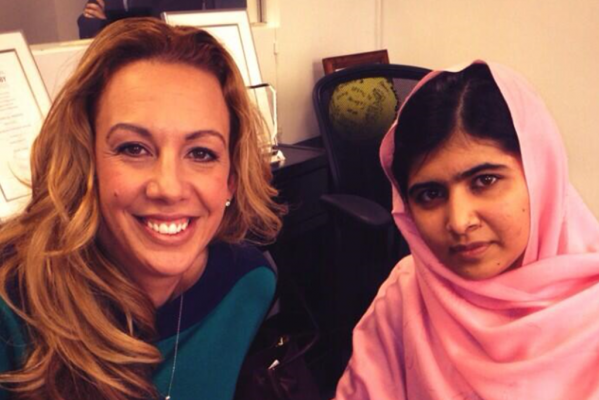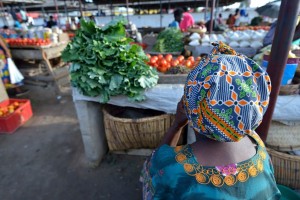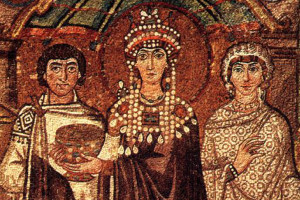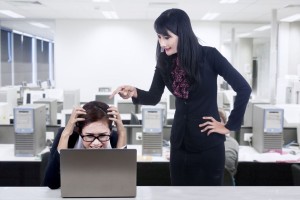Elizabeth Gore, Resident Entrepreneur at the United Nations Foundation, talks about the driving force of female entrepreneurs and making an impact
Elizabeth Gore is a native Texan and the first ever woman in her family to graduate from college, where she majored in animal science, thinking that with her background and home state, she would likely spend the rest of her life employed in the ranching business.
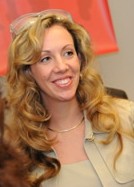 Not quite: her journey since then has been unexpected, and astonishing: she served for over two years as a Peace Corps volunteer in Bolivia; made history by being appointed the first ever “Resident Entrepreneur” United Nations Foundation; was Director of Corporate Relations and Development for the Points of Light Foundation; acted as a consultant for Share our Strength, an organization that works to end childhood hunger; and climbed Mount Kilimanjaro to raise awareness for clean water issues.
Not quite: her journey since then has been unexpected, and astonishing: she served for over two years as a Peace Corps volunteer in Bolivia; made history by being appointed the first ever “Resident Entrepreneur” United Nations Foundation; was Director of Corporate Relations and Development for the Points of Light Foundation; acted as a consultant for Share our Strength, an organization that works to end childhood hunger; and climbed Mount Kilimanjaro to raise awareness for clean water issues.
Not surprisingly, for all these accomplishments and more (read on!), People magazine named her one of the “Top 100 Extraordinary Women.” Recently, Elizabeth Gore, who exudes a down-to-earth persona, says that her college major of “animal science” is now “hysterical to look back on,” and noted that no matter where you go in the world, “San Francisco, or Texas, or New York, or Nigeria, or Bolivia”, women can bond over fashion topics – “Fashion is a tie that binds us all.” She spoke with SharpHeels about her remarkable work, and the future of women on a global scale.
How did you transition in to the world on entrepreneurship?
When I was in college, a friend of mine got pregnant and had to drop out of school, simply because there was no childcare facility. It caused me to really get involved with women’s issues, particularly single moms who need support. I did a bunch of research and realized that – at the time – we were the only school in the Big 12 that didn’t have childcare. I helped build a children’s center at Texas A&M, which really shifted my entire focus to the nonprofit world.
I fell in love with the whole idea of community-based solutions and partnerships and fundraising. I absolutely knew it was what I wanted to do with the rest of my life.
What does your work as the Resident Entrepreneur at the United Nations Foundation focus on?
I’m focused on supporting the UN’s efforts to scale innovation to save lives. Over the years I’ve worked with our president, Kathy Calvin, to build public campaigns like Nothing But Nets [the famous initiative that uses the ultimate simple solution, a net to protect sleepers from malaria-carrying mosquitoes] and Girl Up. We’ve always had a natural relationship with entrepreneurs.
Many people view business and entrepreneurship as a means for self-profit or personal gain. How do you see People, Planet, Profit [a phrase used to describe the “three pillars” of social and environmental concerns] making the world a better place?
Right now we’re in the middle of My World 2015. We’re surveying the most important goals moving forward with the UN. In every single country, “jobs” is among the top four goals. It just shows that people want businesses to thrive. Entrepreneurs are building strong businesses, but they do care about their communities: about global footprints, their environment, and their employees. After all, it’s important to remember those factors make a strong business.
Why do you think women and girls don’t have the same opportunities, and what can we do to make those more available?
Sometimes it’s a simple case of geography. I’m currently sitting in San Francisco but if I’m sitting in South Sudan, I have very different opportunities. So first geography, and then post natural disaster you have refugees. However, even in this country when we’re looking at only 17% of elected officials being women, globally we have a lot of work to do. I am very passionate about the Girl Up campaign that is giving girls the opportunity for leadership. And Google ‘The Girl Effect’ video by Nike. I love that video. Just learn what the status of women are globally, and see if you can give back to that.
Your work helps people feel empowered and engaged. How are you able to feel inspired when you do have so many responsibilities?
I probably feel the strongest when I’m doing right by my family and friends. Frankly, it just gives me a strong foundation so that I can take risks, work hard, travel. If they’re proud I’m probably doing right by the job. They definitely empower me.
Why do you think it is important for women to feel strong and empowered?
None of us is strong every day. But it’s important as an individual to figure out what helps you find that strength. For some people it might be family or relationships, or exercise, or having time to be calm in your solitude. What’s important for women especially is to figure out what that is. Find what helps you get powered back up, and focus on that every once in a while.
Many modern women have multiple roles in different aspects of their lives. How do you think this affects the way they project their confidence and authority?
I think we are in an era where we can absolutely be ourselves, which is pretty amazing because I don’t think our moms had that opportunity. The number one way to project [confidence and authority] is to kick ass at your job, period. Because no one can argue with that. And if that’s happening, you can be yourself. I love wearing stilettos and overly fashionable outfits, and I feel pretty confident about it, because I work hard! Everyone has a different kind of self-definition.
What is your take on the importance of the way you present yourself at work?
I always try to be very serious at work. But as I’ve gotten older, I’ve realized that I’m somewhat silly, and it’s kind of nice to be myself a little bit more. There’s more levity around, which is nice, because we have pretty serious jobs. And I do love my high heels, and big hair!
As a female entrepreneur, have you felt increased challenges because you are a woman?
At a leadership level, the humanitarian space is mostly men, but at the staff level it’s steering more towards women, which is a great trajectory. The entrepreneur space is totally skewed towards men, but I love that there are a lot of programs out there promoting women to fulfill their business goals, such as the Dell Women’s Entrepreneur Network and Google for Entrepreneurs. Our UN Foundation, Global Entrepreneur’s Council [which Gore chairs], requires that we have at least half women on the council.
We live in a great country where we have a lot of opportunity. Unfortunately, I see where girls and women are marginalized, and that’s why our programs are so important.
What is your advice on taking the next step to get involved?
There are so many ways to get involved. Donating to all these organizations is incredibly helpful, but think about writing a letter to your congressman. It would take you five minutes to send an email about the importance of laws around girls or our reproductive health. Think about mentoring another women or girl around you. Use your skill-set. If you’re an accountant, you could actually help a nonprofit in accounting. I think the biggest commitment you could make is actually running for office some day and being a public servant or joining the Peace Corps. It’s is a sliding scale but they’re all critically important. Step one is to find something you’re passionate about, then the rest will happen.
As for Elizabeth‘s personal life, she once again evokes her down-to-earth attitude by saying that one of her goals is “working on being a better mom,” and that her husband is running for public office (as a supervisor in the 4th District of Sonoma County, CA, where they now live), so she is excited to support him. And as for her hobbies, well, you can take the girl out of Texas, but… she readily admits that she still loves to ride horses, and, true to her roots, believes that farming and ranching combine to be the most important industry globally.
12TAGS: leadership UN
 Effective Communication
Effective Communication Women Making History
Women Making History Grants & Funding Sources
Grants & Funding Sources Interview Prep
Interview Prep Impactful Leadership
Impactful Leadership Dressing for Work
Dressing for Work Dressing for Your Style
Dressing for Your Style Interview Style Tips
Interview Style Tips Women's Stocking Stuffers
Women's Stocking Stuffers Gift the Busy Traveler
Gift the Busy Traveler Airport Layover Activities
Airport Layover Activities Traveling & Eating Healthy
Traveling & Eating Healthy Travel Like a Boss Lady
Travel Like a Boss Lady The Dual California Life
The Dual California Life Gifts for Thanksgiving
Gifts for Thanksgiving Summer Reading List
Summer Reading List Top Leisurely Reads
Top Leisurely Reads New Year, New Books
New Year, New Books Life Lessons from a Sitcom
Life Lessons from a Sitcom Oprah, Amy or Amal?
Oprah, Amy or Amal?





